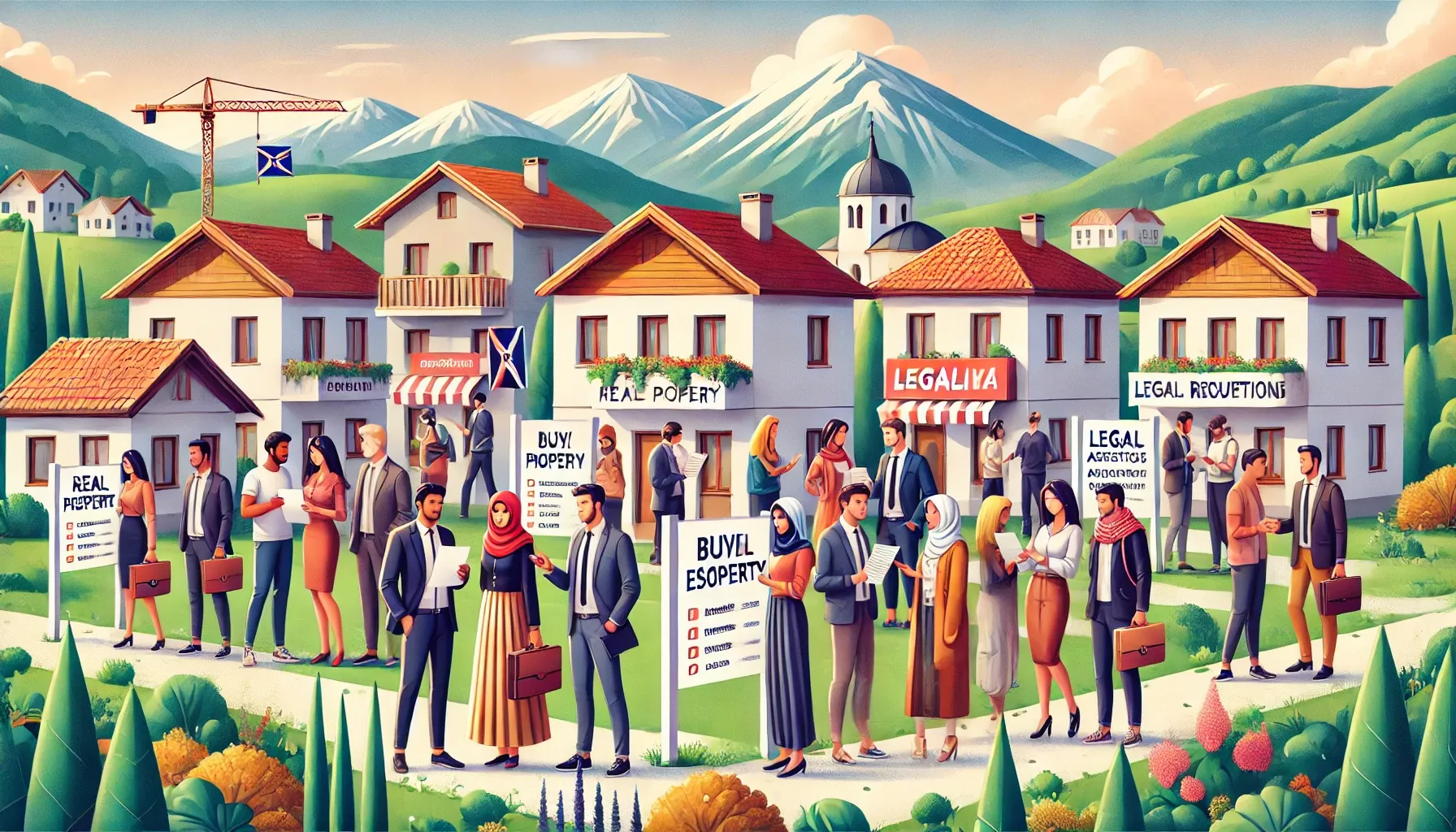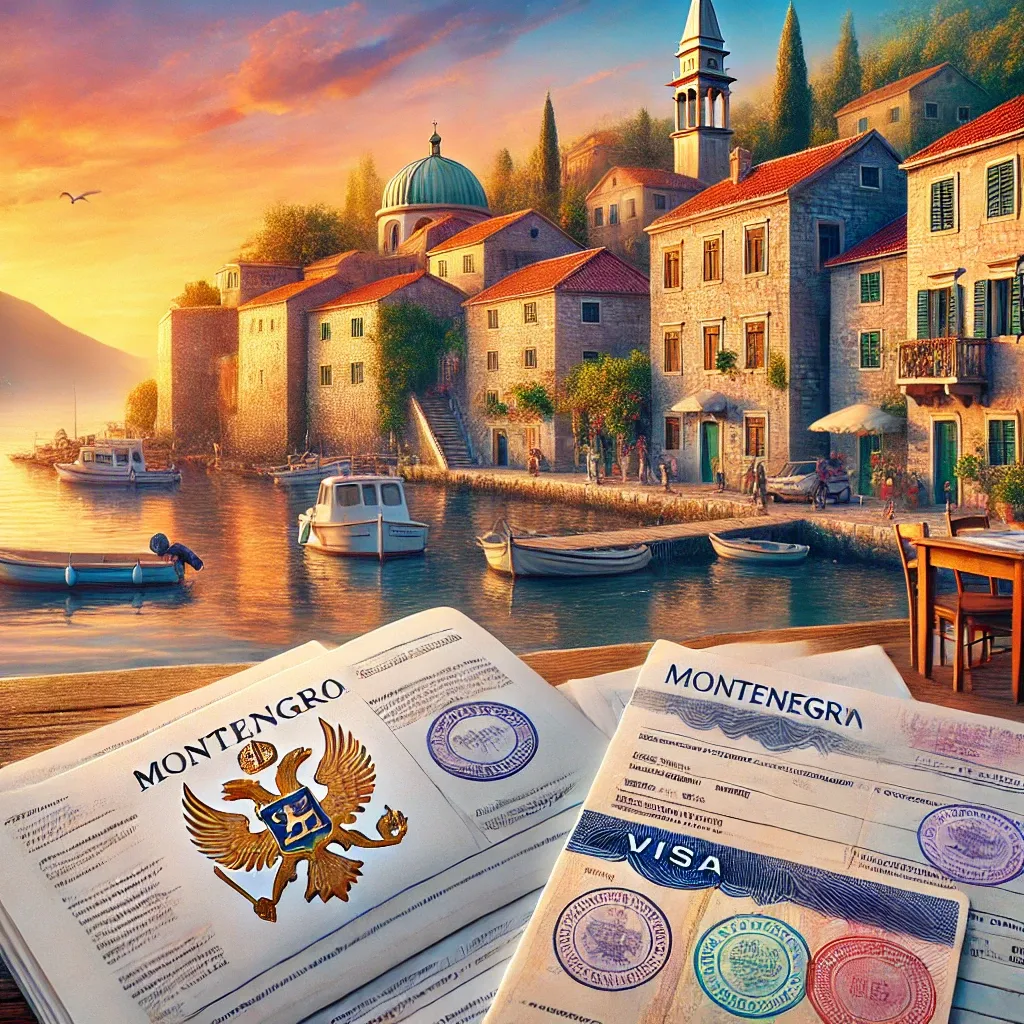What rights do foreigners have regarding real estate in Montenegro?

- How can foreigners purchase real estate in Montenegro?
- How to legally reside in Montenegro: visas and rules for foreigners
Foreigners' rights to real estate in Montenegro
Foreigners in Montenegro have the same rights to purchase real estate as local residents. However, these rights come with certain restrictions established by Law No. 19/09, which regulates property and legal matters.
Restrictions for non-residents
According to this legislation, non-residents cannot own the following assets:
- Natural resources;
- Property related to public use objects;
- Agricultural land plots;
- Forest areas;
- Significant cultural monuments.
In addition, there are restrictions on the purchase of real estate:
- Within a radius of one kilometer from the state border;
- On the islands;
- In strategically important regions for the country's security.
Exceptions to the restrictions
Despite the mentioned restrictions, there is an opportunity for citizens of other countries to establish the right to:
- Agricultural plots;
- Forests and woodland areas.
To successfully implement this opportunity, the transactions (sale, donation, or exchange) must include a residential house on the specified lands. In other cases, non-residents can freely conduct real estate transactions, including inheritance transfers, on par with Montenegrins.
The process of acquiring real estate
Buying real estate in Montenegro is quite simple and doesn't require much effort. To complete the transaction, the buyer only needs to have a foreign passport.
As Milan Milenkovich, the CEO of CMM Investment Consulting Group, noted, the seller is required to provide:
- Personal identification document (personal card);
- A certificate of ownership, known as a property sheet, which is issued by the local administration.
Key transaction documents
The main documents that are signed during the transaction include:
- A backup agreement that outlines the deadlines for concluding the main agreement and the payment schedule;
- Main sales contract;
- Receipt confirming the transfer of the full amount to the seller.
In addition, it will be necessary to draft a statement indicating that the seller has no claims against the buyer, which will allow for the registration of their property. The parties may also agree to waive the preliminary contract and directly sign the main sales agreement.
Purchase on the secondary market
If the transaction involves the secondary real estate market, then after signing and notarizing the purchase agreement, it is necessary to call an appraiser from the city administration. This specialist will issue a document confirming the market value of the property in accordance with state standards.
Taxes and property registration
The new owner is required to pay a state tax on the purchase, known as the stamp duty, which is 3% of the assessed value of the property. After the tax is paid, an application is submitted for the registration of ownership in the name of the new owner, who will receive a title deed in their name.
The property registration process usually takes between two to four months.
Introduction
One of the most important questions faced by newcomers who have become property owners in Montenegro is determining the duration of time they can legally stay in the country. What changes have occurred in this area? Since the beginning of 2009, an updated law on the status of foreigners has come into effect in the country, which has become more aligned with European Union standards. Currently, Montenegro offers various types of visas: airport transit visa (A), transit visa (B), short-stay visa (C), and long-stay visa (D). The most sought-after are the C and D category visas, which allow temporary residence in the country.
Short-term visa category C
The short-term category C visa is suitable for tourists, business travelers, and other types of vacationers.
9 October 2024
29 January 2025
29 January 2025
9 October 2024
29 September 2025
A distinctive feature of the collective type C visa is that it grants the right to stay in the country for a maximum of 30 days and cannot be extended, except in cases related to humanitarian, professional, or personal circumstances.
Agreement for citizens of Russia
For Russians, there are special agreements between Montenegro and the Russian Federation that allow them to visit the country, transit through it, and stay here for up to 30 days with a foreign passport without the need for a visa. As noted by Dragan Prelevic, managing partner of the law firm "Prelevic," there is a set limit of 90 days of stay for Russian citizens, according to Article 31 of the mentioned law.
This means that endless trips in and out of the country are now impossible. Citizens can stay in Montenegro without a visa, entering for months at a time, but the total duration of stay must not exceed three months within a six-month period, starting from the first date of entry. These rules also apply to those who have purchased real estate.
Long-term visa (category D)
As for the long-term visa (category D), it is issued to foreign citizens for one or multiple entries into Montenegro and grants the right to stay in the country for three to six months from the date of the first entry.
In addition, there is a temporary residence permit called "boravak," which is granted to foreigners for stays longer than 90 days. This type of residence permit can be obtained for various reasons, such as:
- work
- studies
- scientific research
- treatment
- other grounds
To apply for a temporary residence permit, a foreigner must demonstrate financial stability, have health insurance, and provide housing for the entire duration of their stay in Montenegro.
A temporary residence permit is issued for one calendar year, with the possibility of extending it for another year. After this period, if you need to stay longer, you will have to go through the procedure of reapplying for a residence permit.
Thus,The process of legalizing residence in Montenegro requires foreign citizens to carefully familiarize themselves with visa regulations and thoroughly prepare the necessary documents.

Conclusion
In conclusion, it is important to note that the process of acquiring real estate in Montenegro for foreigners has its own peculiarities and restrictions. Despite the significant rights granted to non-residents, there are many factors to consider when making real estate transactions. The legislation clearly states that non-residents cannot own certain types of property, such as natural resources, cultural monuments, and land near the state border.
Over time, Montenegro's legislative framework is becoming more transparent and adapting to European standards, creating favorable conditions for foreign investors. With new types of visas, such as short-term and long-term, foreigners can more easily plan their stay in the country, which also boosts interest in purchasing real estate.
Key aspects of the real estate purchasing process
- Understanding the legal aspects related to the purchase and ownership of real estate.
- Compliance with the allowable duration of stay in the country.
- Requirements for financial documents and health insurance.
- Possibilities for extending temporary residence permits.
Therefore, for those who intend to invest in real estate in Montenegro, it is important to thoroughly study all the rules and conditions, and, if necessary, seek legal assistance. This will help avoid potential difficulties and make the process of acquiring property as comfortable and safe as possible.
Comment
Popular Posts
9 October 2024
1496
29 January 2025
1567
9 October 2024
9966
29 September 2025
443
Popular Offers



Subscribe to the newsletter from Hatamatata.com!
Subscribe to the newsletter from Hatamatata.com!
I agree to the processing of personal data and confidentiality rules of Hatamatata












